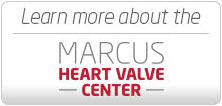Echocardiography is the diagnostic modality of choice for patients with heart valve disease. However, cardiac MRI technology can be helpful in diagnosing complex cases and developing effective treatment plans for patients with certain conditions. Cardiac MRI (magnetic resonance imaging) is a noninvasive test that utilizes radio waves, magnets and a computer to create both moving and still pictures of the heart.
Digital images from the test are then reviewed on a computer to assist in diagnosis and treatment planning. Unlike other imaging tests, MRI does not pose a cancer risk because it does not use ionizing radiation.
Cardiac MRI is generally used only if physicians can’t obtain answers to specific questions by other modalities. MRI results can complement or help explain results from ultrasounds, computed tomography (CT) scans and/or X-rays.
The benefits of cardiac MRI
Typically, with valvular heart disease, cardiologists don’t just look at one piece of information. They look at several during the planning and the procedure. One of the MRI's strengths is that we get the heart's squeezing, but we see how large it is in a very accurate way.
This helps cardiologists identify the correct timing for valve replacement. Cardiac MRI technology allows physicians to:
- Clearly see scar tissue, such as damage from a heart attack or congenital heart defects.
- Determine if an interventional cardiologist or surgeon needs to bypass a certain area in the heart because of scarring.
- Determine if it is worthwhile to open an artery.
- Have a better understanding of the heart’s function, rather than just a visual estimation on ultrasound.
Cardiac MRI is especially useful for treating valve disease patients with complex congenital heart defects because their anatomy is difficult to view on ultrasound. While MRI takes longer, it provides more comprehensive information. In addition to diagnosing valve disease, cardiac MRI can diagnose:
- Congenital heart defects (defects with which a patient is born)
- Heart failure
- Damage caused by a heart attack
- Pericarditis (inflammation in the membrane surrounding the heart)
- Cardiac tumors
Piedmont Heart Institute
A dedicated cardiac MR scanner and the Piedmont Heart Institute's expert staff provide patients with an advantage. Piedmont Heart Institute physicians and staff have dedicated training in a range of subspecialized areas, which allows them to provide a more accurate diagnosis and treatment plan for patients with complex conditions. For more information on cardiac MRI, visit Piedmont Heart Institute
Need to make an appointment with a Piedmont physician? Save time, book online.
